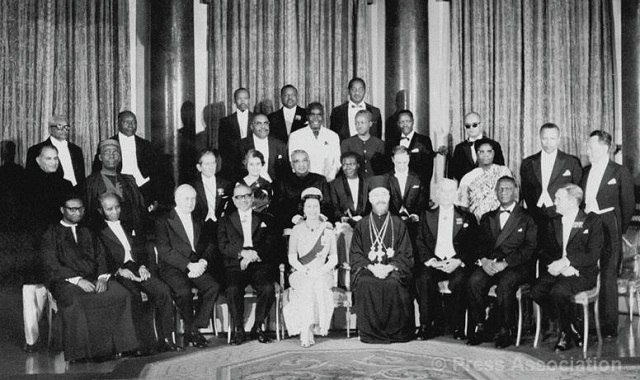
Britain had come to rely ever more heavily on the Empire for its survival during the cataclysm. In full knowledge of this, the dominions and India had begun to demand a greater say over an imperial foreign policy that could have such momentous consequences for them.
The Imperial War Conference issued Resolution IX, which recognised: “ … the dominions as autonomous nations of an Imperial Commonwealth, and … India as an important portion of the same”.
The resolution further recognised: ” … the right of the dominions and India to an adequate voice in foreign policy and in foreign relations, and should provide effective arrangements for continuous consultation in all important matters of common imperial concern, and for such necessary concerted action, founded on consultation, as the several governments may determine”.
Names matter. In naming something or someone, not only do we give them a social handle, we also aim to define the essence of what they are and what we want them to be. Names are meant to shape their hosts and evoke behaviours; that’s why we remain so fascinated by what particular names “mean”. “Commonwealth” was chosen by a succession of statesmen for no less a reason.
Let’s start with the noun it replaced. The British, as they became increasingly devoted to liberal politics and economics, the rule of law and freedom of religion, had grown increasingly uncomfortable with the idea of empire. These were what despots and autocrats built; Britain’s growing dominion was something entirely different.
Like ancient Athens, they told themselves, Britain’s was a liberal empire: built on democracy, free trade and maritime strength, not on huge standing armies and command-and-control repression.
Queen Victoria may have been named “Empress of India”, but Britons could not bear to think they were in charge of a project akin to that which Louis XIV, Frederick the Great or Napoleon had tried to build.
And so they found a gentler, less precise title. But “Commonwealth” was not without controversy, evoking for some the horrors of Cromwell’s own very English revolutionary fervour and despotism.
The rehabilitation of “Commonwealth” was simultaneously occurring in Australia, at a time when the colonists were contemplating their own momentous remaking of their political order. As historian W.K. Hancock pointed out, the name was adopted: “ … as a manifesto, a declaration of faith in a way of life, rather than as an accurate descriptor in terms known to political science. The name Commonwealth is a programme in itself”.
“Commonwealth” is an anglicisation of the Latin term res publica: “the welfare of the people”. But the modern usage of this term “republic” carries with it a precise constitutional framework, as defined by the jurists of the Roman Republic and the constitutional fathers of the U.S.
“Commonwealth” is less precise, more mystical. It dates from the late 15th century, when England was throwing off the yoke of the Roman church and abolishing feudalism. At a time of great political, social and ecclesiastical upheaval, the English coined a term evoking a comforting vision of an idealised Anglo-Saxon harmony.
For Hancock: “The idea depended on the conception of society as a mystical body, as an organic unity based on a just and harmonious distribution of functions and rewards among the various degrees and estates of men … The idea of the Commonwealth as a mystical body denied that any man or any rank possessed a natural right to power and wealth: it insisted on stewardship”.
How perfect for an empire acquired by anti-imperialists. Theirs was not a system of domination and extraction, they told themselves it was a voluntary association of free societies, held together by sentiment and loyalty for the mutual support and welfare of all.
Surely it is a testament to the power of names that the Commonwealth gained in strength and sentiment even as the empire it tried to deny became ever more repressive, extractive and attached to racial hierarchy.
As the great Commonwealth loyalist Alfred Deakin wrote in London’s Morning Post in 1906, the British Empire: “ … though united in the whole, is, nevertheless, divided broadly into two parts, one occupied wholly or mainly by a white ruling race, the other principally occupied by coloured races who are ruled. Australia and New Zealand are determined to keep their place in the first class”.
The Commonwealth thus became a cypher for the arc of British imperial delusion. Its siren call of volunteerism and the good-of-all convinced a nation caught in industrial eclipse to expand its responsibilities vastly beyond what it could ever hope to maintain.
And, repeatedly, it maintained association among the disparate parts of empire when rational statecraft would have brought an emphatic end to the quixotic enterprise.
 The Independent Uganda: You get the Truth we Pay the Price
The Independent Uganda: You get the Truth we Pay the Price





